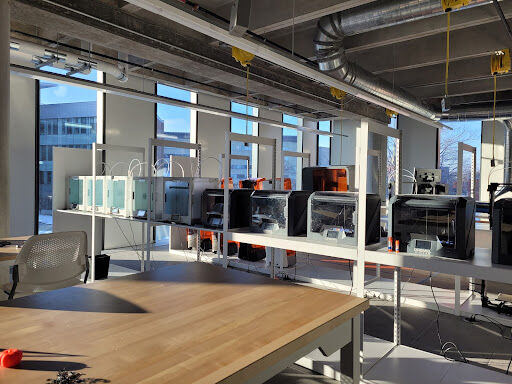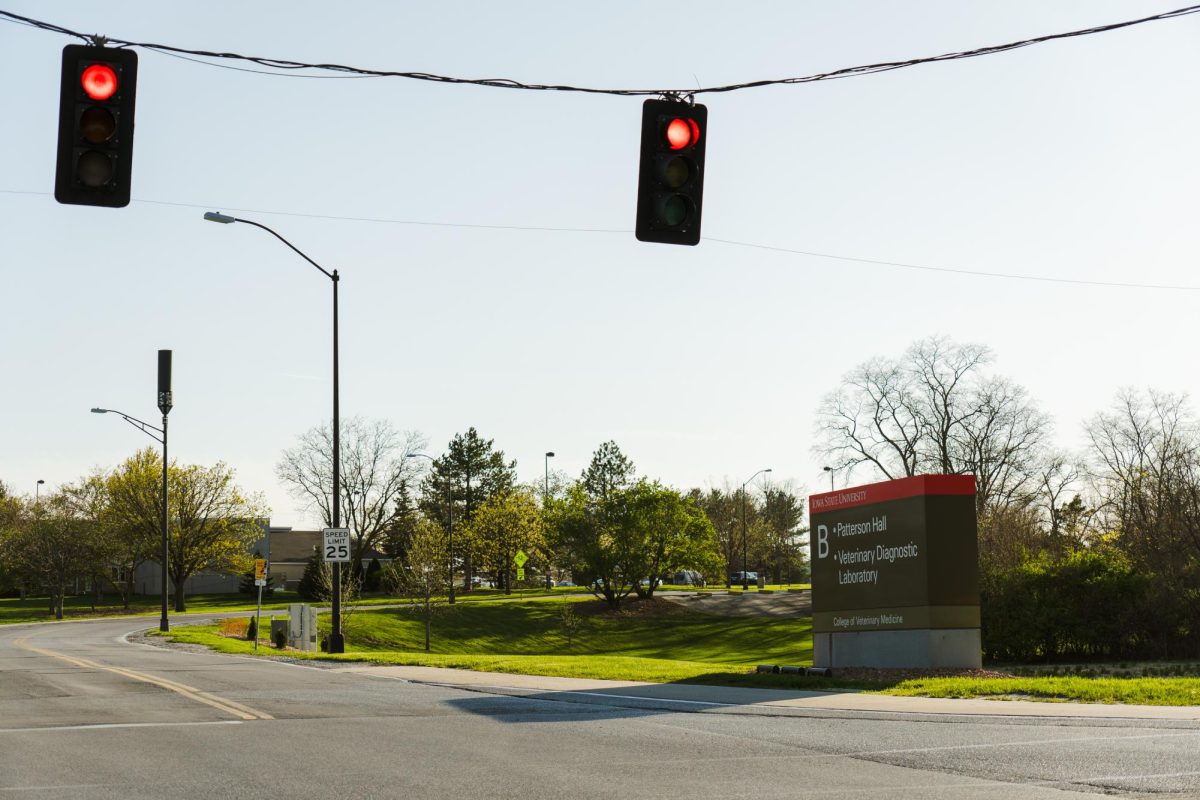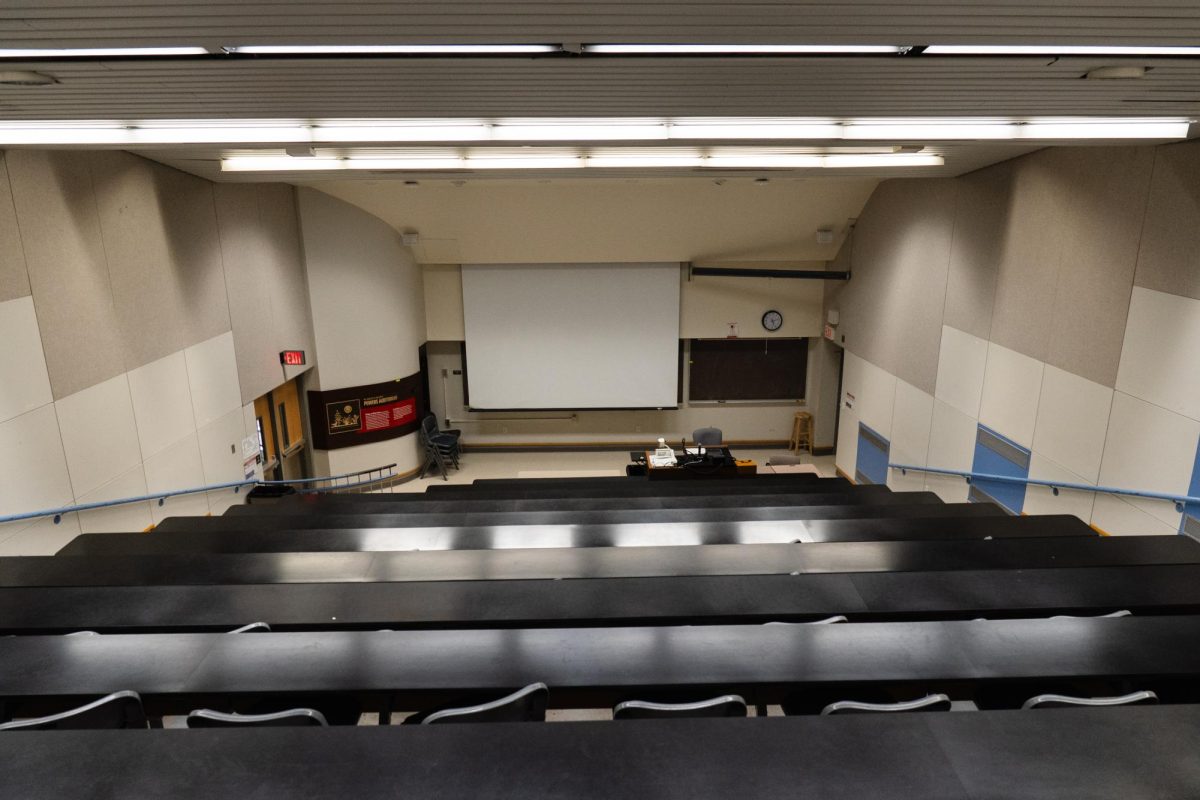SICTR Makerspaces partially open for business

Various types of 3-D printing equipment are available in the Electronics, Textiles and 3-D Printing lab in the SIC.
February 2, 2022
Students, faculty and staff can unleash their creativity in the Student Innovation Center (SICTR) Makerspaces.
The SICTR has eight workshop areas called Makerspaces available. They include the Composite Material Fabrication Shop, the Digital Media Production Suite, the Digital Modeling and Visualization Lab, the Dynamometer (Engine) Testing Lab, the Electronics, Textiles and 3-D printing Shop, the Heavy Metal Shop, the Metal and Woodworking Shop and the Paint Booth and Finishes Shop.
However, only the Electronics, Textiles and 3-D Printing Shop is open for all faculty, students and staff to use.
“…Really with 3-D printing and additive manufacturing, I mean, the sky’s the limit really. Whatever you can imagine you can create with one.” said Rob Maroc, a teaching laboratory specialist with the industrial design program. “There are things you can create with 3-D printing that you can’t create in any other way.”
The Makerspace is open from 8 a.m. to 11 p.m Monday through Friday and has two shop managers.
In order to use the shop, students, staff and faculty must complete a training course that includes both online training in Canvas and hands-on training using the equipment. Registration for the shop training can be done in person or through the form available on the shop’s website.
“It’s super easy to learn how to use the equipment,” said Jack Evans, a graduate student in business administration. “The shop has a Canvas page where you take all the fundamental and machine-specific training. [The supervisors] also give awesome hands-on instructions with each machine before you get checked off to use it.”
The materials needed to use the equipment in the Electronics, Textiles and 3-D Printing Shop are provided during the initial training, but after that it’s the user’s responsibility to buy and bring their own materials and protective gear, including the required safety glasses. Users are not charged for equipment usage, but the shop currently operates on a first-come, first-served basis.
Students, faculty and staff can use the Makerspace for personal projects, class projects and group projects with the exception of using the equipment to run a business.
“So far I have 3-D printed phone holders for the Iowa State Marching Band as well as a few fun parts to test the capabilities of the printers,” Evans said. “I’m hoping to start an SLA resin print in the near future.”
The equipment available in the shop includes multiple types of 3-D printers, a tapestry loom, an oscilloscope, a power supply and a waveform generator.
“By exposing the students to some of this technology and facilities, it gets them thinking about ‘What could I do with this?’ or ‘How could I utilize this?’” Maroc said. “Being able to see and use equipment like this will allow them to hopefully develop their ideas further and, you know, kinda push the envelope on things.”
The other Makerspace will be open for all students, faculty and staff to use sometime soon, according to the SICTR website.
More information about the Makerspaces can be found on the Student Innovation Center’s website here: Makerspaces • Student Innovation Center • Iowa State University (iastate.edu)
More information about the Electronics, Textiles and 3-D Printing Shop can be found on the Student Innovation Center’s website here: Electronics, Textiles, and 3D Printing • Student Innovation Center • Iowa State University (iastate.edu)















